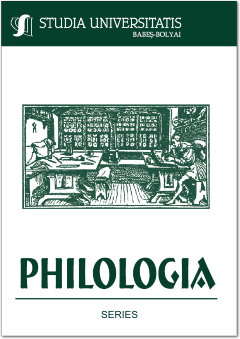WORDS IN (EVERY)ONE’S MIND. TIPS AND TRICKS ON ROMANIAN LEXIS ACQUISITION
WORDS IN (EVERY)ONE’S MIND. TIPS AND TRICKS ON ROMANIAN LEXIS ACQUISITION
Author(s): Diana-Viorela BurlacuSubject(s): Language and Literature Studies
Published by: Studia Universitatis Babes-Bolyai
Keywords: CEFR; communication; language; lexicology; learning strategy; meaning; mental lexicon; Romanian vocabulary; semantics.
Summary/Abstract: Words in (Every)one’s Mind. Tips and Tricks on Romanian Lexis Acquisition. Words, be they viewed as separate entities, semantically related or connected in utterances, represent the basis of a language and, extensively, of communication. Due to the world knowledge we all share, to which several social features are added, humans basically ‘speak’ the same ‘language’, assumed as a series of common-sense (non-)verbal actions. It goes without saying that communicators understand each other mostly by means of a common language; once they intend to transfer their thoughts into a foreign language, overlapping, misunderstandings or breaches of communication may occur. Such linguistic facts represent the premise of the present study, which aims to survey certain differences between native and non-native speakers, the focus being the Romanian language (as a foreign language). A peculiar Balkan Romance language, with Slavic, Greek and Turkish influences, the Romanian language has intrigued different speakers from all over the world, both by its lexis and its grammar. Out of practical considerations, merely the Romanian vocabulary is examined here, and particularly the A1-A2 speakers (in accordance with the CEFR, The Common European Framework for Languages) are addressed, since it is the beginners who typically encounter many linguistic hardships. Certain pragmatic learning strategies (validated through research and teaching experience) are collected in the study, meant to represent a useful (yet not extensive) tool for anyone interested. Naturally, relevant examples are provided, in a gradual approach from simple to complex, such degrees encompassing phonetics, semantics and pragmatics.
Journal: Studia Universitatis Babes-Bolyai - Philologia
- Issue Year: 62/2017
- Issue No: 2
- Page Range: 43-52
- Page Count: 10
- Language: English

